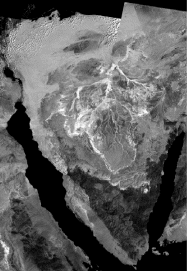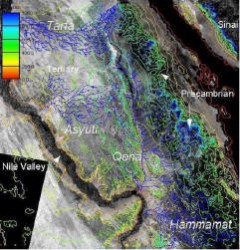We are conducting comprehensive studies to develop, validate, and demonstrate techniques for evaluating the extent of alternative renewable water resources arising from sporadic precipitation over large watersheds in arid and semi-arid mountainous areas, using the Eastern Desert and the Sinai Peninsula of Egypt as our test sites. The comprehensive techniques that we advocate encompass the use of various geochemical and isotopic techniques; surface and groundwater modeling; analysis of Landsat, digital elevation, seismic, and drilling data; and field observations. To the best of our knowledge, no such comprehensive studies have been applied previously in Saharan Africa and in neighboring arid and semi-arid countries, although they are required to evaluate renewable water resources. We will determine the source of the groundwater under investigation, evaluate the extent and magnitude of alluvial groundwater that is recharged by rainwater precipitating over the Red Sea Hills area in the Eastern Desert (a largely untapped resource), and determine the timing of the recharge cycle. The results should be viewed as a model to be replicated in neighboring Middle Eastern and Saharan countries, as well as in Nile valley countries.
Egyptian Participants
Ministry of Water Resources and Irrigation, National Water Reasearch Center
- Dr. Mahmoud Abu-Zeid, Minister
- Prof. Dr. Mona El-Kady, Chairperson National Water Research Center
US Participants
- Prof. Dr. Mohamed Sultan, Chairman of the Geosciences Department
University of Illinois, Chicago

